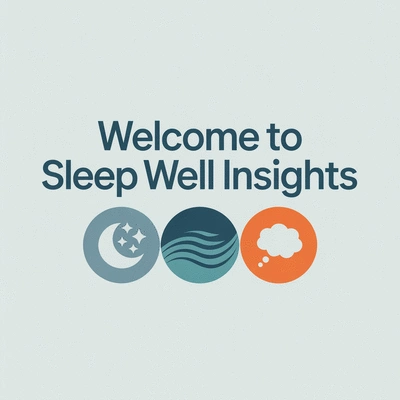Have you ever felt like you were battling an invisible enemy every night as you lay awake, longing for sleep? Chronic insomnia is more common than you might think, and recognizing its impact is the first step toward reclaiming your nights. Let's delve into some essential insights that can help illuminate your your path to better sleep.
What You Will Learn
- Chronic insomnia affects daily functioning, leading to fatigue, irritability, and mood changes.
- Understanding the underlying causes of insomnia, such as sleep disorders like sleep apnea and restless leg syndrome, is crucial for effective treatment.
- Traditional treatments, including sleeping pills, can lead to dependency and may not address the root causes of insomnia.
- Cognitive Behavioral Therapy for Insomnia (CBT-I) offers long-lasting solutions by targeting the root causes and improving sleep quality without medications.
- Digital CBT options provide convenient, accessible therapy that can be tailored to individual schedules and needs.
Unpacking Chronic Insomnia: Symptoms, Impact, and Treatment Pathways
This visual summarizes key aspects of chronic insomnia, from its symptoms and broader impact to traditional treatments and the holistic benefits of CBT-I. It highlights common challenges and effective solutions for better sleep.
Symptoms of Chronic Insomnia
- Trouble falling asleep
- Frequent nighttime awakenings
- Waking too early
- Daytime fatigue, irritability
Broader Impact of Insomnia
- Impaired cognitive function
- Increased risk of mood disorders
- Higher chronic illness susceptibility
- Decreased quality of life
Traditional Treatments Fall Short
- Risk of dependency on meds
- Potential for side effects
- Fails to resolve underlying issues
Benefits of CBT-I for Insomnia
- Long-lasting results
- Develops practical sleep skills
- Reduced reliance on sleep meds
- Addresses root causes
Understanding Chronic Insomnia and Its Challenges
Chronic insomnia can feel like an uninvited guest that overstays its welcome, disrupting your life when you least expect it. It’s defined as difficulty falling asleep, staying asleep, or waking up too early, impacting your daily functioning. Many people experience chronic insomnia for weeks, months, or even years, which can lead to serious health consequences if left unaddressed.
Some common symptoms include:
- Persistent trouble falling asleep
- Frequent waking during the night
- Waking up too early and being unable to go back to sleep
- Daytime fatigue or sleepiness
- Irritability and mood changes
These symptoms can profoundly affect one's personal and professional life, leaving you feeling like you're running on empty. If you recognize these signs, know that you're not alone, and understanding this condition is the first step toward reclaiming your restful nights.
Defining Chronic Insomnia: Symptoms and Impact
Chronic insomnia isn’t just a lack of sleep; it’s a complex condition that intertwines with various aspects of life and well-being. Individuals may find themselves grappling with emotional consequences, such as increased anxiety or difficulty concentrating, which can further exacerbate sleep issues. Many of my readers at Sleep Well Insights share how their sleepless nights have impacted their relationships, work performance, and overall happiness.
Understanding the impact of chronic insomnia goes beyond mere fatigue. Here are some of the effects it may have:
- Impaired cognitive function
- Increased risk of mood disorders, like depression
- Higher susceptibility to chronic illnesses, such as heart disease
- Decreased quality of life
Recognizing these impacts can motivate individuals to seek help and explore effective treatments. For a deeper dive into the broader impact of insomnia, you can refer to insights published in Nature Mental Health, which highlights the critical need for effective interventions.
Exploring Sleep Disorders and Their Relationship with Chronic Insomnia
Sleep disorders encompass a variety of conditions that disrupt normal sleep patterns, and chronic insomnia is often a symptom rather than a standalone issue. Conditions like sleep apnea, restless leg syndrome, and even anxiety disorders can contribute to the development of chronic insomnia. At Sleep Well Insights, I emphasize the importance of a thorough evaluation to identify underlying sleep disorders that may be exacerbating insomnia.

By addressing these conditions, you can take significant steps toward improving your overall sleep quality. Here are some common sleep disorders linked to chronic insomnia:
- Sleep apnea: Characterized by brief pauses in breathing during sleep
- Restless leg syndrome: An uncontrollable urge to move your legs, usually at night
- Periodic limb movement disorder: Involuntary jerking of the legs during sleep
Understanding these connections is crucial for effective treatment and management of insomnia. Knowledge is power, and by uncovering these relationships, you can better navigate your path to improved sleep.
Why Traditional Treatments May Fall Short
Many individuals turn to traditional treatments, like sleeping pills, in hopes of finding quick relief from their insomnia. However, these solutions often come with their own set of challenges. While they may provide immediate results, they do not address the root causes of chronic insomnia and can lead to dependency or rebound insomnia when discontinued.
Moreover, the side effects of medications can sometimes outweigh the benefits, leaving you feeling groggy and unrefreshed. Here’s why traditional treatments might not be the best long-term solution:
- Risk of dependency on sleep medications
- Potential for side effects such as dizziness or impaired coordination
- Failure to resolve underlying issues contributing to insomnia
Instead, exploring more holistic approaches like Cognitive Behavioral Therapy for Insomnia (CBT-I) can provide you with sustainable strategies to regain control over your sleep. In the next section, we’ll delve into how CBT-I can tackle insomnia effectively.
Pro Tip
Consider integrating relaxation techniques into your nightly routine. Practices such as deep breathing, gentle yoga, or meditation can significantly reduce anxiety and prepare your body for restful sleep. By creating a calming pre-sleep environment, you set the stage for more restorative nights.
Summarizing the Benefits of CBT for Chronic Insomnia
When it comes to managing chronic insomnia, Cognitive Behavioral Therapy for Insomnia (CBT-I) is often recommended as a first-line treatment. This is not just because it’s effective, but also due to its holistic approach that addresses the underlying causes of sleeplessness rather than just the symptoms. Throughout my journey with Sleep Well Insights, I've seen firsthand how empowering this method can be for individuals struggling with sleep issues.
Some of the standout benefits of CBT-I include:
- Long-lasting results that extend beyond the therapy period.
- A focus on developing practical skills that enhance sleep quality.
- Reduced reliance on sleep medications, minimizing side effects.
These benefits highlight why CBT-I stands out as a reliable approach to tackling the challenges of chronic insomnia.
Why CBT-I is a Recommended First-Line Treatment
Many healthcare professionals recommend CBT-I as the first-line treatment for chronic insomnia, and for good reason! It’s been shown to be effective in numerous studies, and its structured techniques can lead to a sustainable improvement in sleep habits. Unlike medications that might only provide temporary relief, CBT-I dives deeper, addressing cognitive patterns and behaviors that contribute to insomnia. Studies have underscored the effectiveness of CBT-I as a durable treatment for chronic insomnia, demonstrating its long-term benefits as detailed in research published in JAMA Psychiatry.
Additionally, CBT-I is not just about fixing sleep issues; it aims to transform your relationship with sleep altogether. This transformative aspect makes it an ideal choice for anyone looking to achieve long-term results.
Next Steps: How to Start Your CBT-I Journey
Ready to take the plunge into CBT-I? Here’s how you can embark on your journey:
- Research local therapists who specialize in CBT-I or ask your healthcare provider for recommendations.
- Consider online resources and programs that offer structured CBT-I courses.
- Keep an open mind and be ready to actively engage in the therapy process.
These steps can set you on a path toward reclaiming restful nights and rejuvenated days!
Exploring Digital CBT for Insomnia (dCBT-I): Accessibility and Convenience
Digital CBT for insomnia (dCBT-I) is revolutionizing the way we approach sleep treatment. With the convenience of accessing therapy online, individuals no longer have to navigate the challenges of in-person appointments. This accessibility can be particularly beneficial for those with busy schedules or who live in remote areas. For more information on the platforms and characteristics of dCBT-I, the American Academy of Sleep Medicine provides valuable resources.

Features of dCBT-I often include:
- Interactive modules that guide you through CBT-I techniques at your own pace.
- Trackers to monitor your sleep patterns and progress over time.
- Access to professional support through chat or video sessions.
By leveraging technology, dCBT-I offers a flexible and effective solution for those seeking to improve their sleep health.
FAQs About Chronic Insomnia and CBT-I
What is chronic insomnia?
Chronic insomnia is defined as persistent difficulty falling asleep, staying asleep, or waking up too early, which significantly impacts daily functioning and can last for weeks, months, or even years.
What are the common symptoms of chronic insomnia?
Common symptoms include persistent trouble falling asleep, frequent nighttime awakenings, waking too early, daytime fatigue, sleepiness, irritability, and mood changes.
How does chronic insomnia impact overall well-being?
Its impact extends beyond fatigue, leading to impaired cognitive function, increased risk of mood disorders like depression, higher susceptibility to chronic illnesses, and a decreased quality of life.
Why are traditional treatments like sleeping pills often not recommended for chronic insomnia?
Traditional treatments may offer temporary relief but often don't address the root causes of insomnia. They can lead to dependency, potential side effects, and rebound insomnia when discontinued.
What is CBT-I, and why is it considered a first-line treatment for chronic insomnia?
CBT-I (Cognitive Behavioral Therapy for Insomnia) is a holistic approach that addresses the underlying cognitive patterns and behaviors contributing to sleeplessness. It's recommended as a first-line treatment because it offers long-lasting results, develops practical sleep skills, and reduces reliance on sleep medications.
What are the benefits of Digital CBT for Insomnia (dCBT-I)?
dCBT-I offers accessible and convenient treatment through online platforms, suitable for individuals with busy schedules or those in remote areas. It often includes interactive modules, sleep pattern trackers, and professional support, providing a flexible and effective solution.
Engagement and Support Resources
Real-world Patient Testimonials: Success Stories with CBT-I
Hearing from others who have successfully navigated their insomnia challenges can be incredibly motivating. At Sleep Well Insights, we’ve gathered numerous testimonials from individuals who have transformed their sleep with CBT-I. Their stories highlight the hope and possibility that comes from applying these techniques.
Finding Professional Help: Therapists and Digital CBT-I Options
Finding the right therapist or digital program is essential for your success. Look for professionals with experience in CBT-I, and don’t hesitate to ask about their approach and outcomes. Resources like Sleep Well Insights can guide you in identifying reputable options tailored to your needs.
The Role of the Sleep Foundation and National Sleep Foundation in Patient Education
Organizations like the Sleep Foundation and National Sleep Foundation play crucial roles in educating patients about sleep health. They provide valuable resources, research findings, and support that can enhance your understanding and management of insomnia. Engaging with these organizations can also connect you with a broader community of individuals striving for better sleep.
Recap of Key Points
Here is a quick recap of the important points discussed in the article:
- Chronic insomnia is characterized by persistent difficulty in falling asleep, staying asleep, or waking too early.
- Common symptoms include daytime fatigue, irritability, and impaired cognitive function.
- Chronic insomnia can be intertwined with sleep disorders like sleep apnea and restless leg syndrome.
- Traditional treatments often do not address underlying causes and can lead to dependency.
- Cognitive Behavioral Therapy for Insomnia (CBT-I) is recommended as an effective first-line treatment.
- Digital CBT for insomnia (dCBT-I) offers accessible and convenient treatment options for individuals seeking help.










